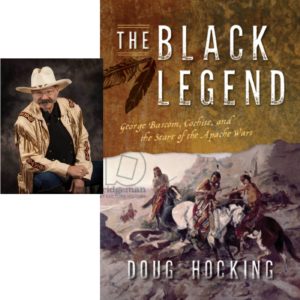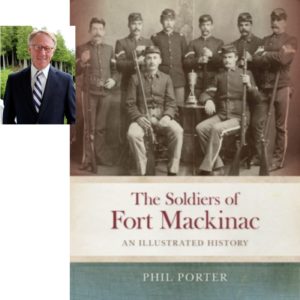Podcast: Play in new window | Download
Subscribe: RSS

Doug Hocking has lived in the American Southwest for much of his life. He’s written lots of western historical fiction and non-fiction. We discussed his latest book on Cochise and the Apache War of 1861.
0:50 – Doug talks about how he got into studying the Apache Wars. He grew up on the Jicarilla Apache reservation. He got into studying the Bascom and Cochise affair and found many discrepancies in the accepted story.
6:32 – Doug talks about how he starts the story in 1856. He then gets into how the Apache War started.
13:57 – Doug talks about the differences between US Army and Native American tactics.
He talks about terrain and weapons. He also talks about rations and food for each side.
19:00 – Doug talks about why he considers Cochise the best Apache leader in history.
22:32 – Doug talks about the relationships between the area tribes. He also talks about how the Apache Indians learned how to raid for spoils.
25:16 – Doug talks about how various groups in the area were armed.
29:08 – Doug talks about Apache clothing and how it was affected by combat. He also talks about clothing worn by US soldiers.
37:01 – Doug talks about the US Army were supplied in the area.
39:28 – Doug talks about who had to serve out in this area.
44:04 – Doug talks about what the forts were like in the area.
47:37 – Doug talks about the newspapers and other resources he used. He also mentions some Mexican records hat are useful to this research.
54:40 – Doug came to dislike Rueben Bernard.
58:07 – He’s on DougHocking.com and his books are there as well as on Amazon.
Links of interest
For more “Military History Inside Out” please follow me on Facebook at warscholar, on twitter at Warscholar, on youtube at warscholar1945 and on Instagram @crisalvarezswarscholar
Guests: Doug Hocking
Host: Cris Alvarez
Tags: military, history, military history, conflict, war, interview, non-fiction book, California, Texas, US Civil War, Bascome, Cochise, Apaches, dragoons, Utes, Embudo mountains, Fort Union, Fort Buchanan, Santa fe, General Buell, West Point, Fort Massachusetts, Fort Defiance, Fort Cummings, Army posts, adobe, jachal, Tucson

 Phil Porter is director of Mackinac State Historic Parks and has studied the Mackinac area extensively. We talk about his latest book on the soldiers of Fort Mackinac.
Phil Porter is director of Mackinac State Historic Parks and has studied the Mackinac area extensively. We talk about his latest book on the soldiers of Fort Mackinac.